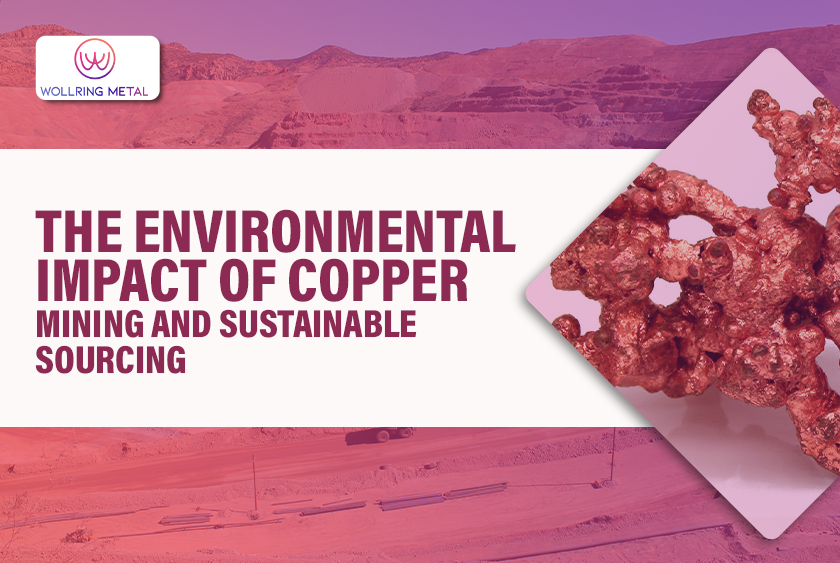The Environmental Impact of Copper Mining and Sustainable Sourcing
Copper is essential to modern industries, from construction and electronics to renewable energy. However, its extraction and processing come with environmental consequences. As sustainability becomes a global priority, industries are working to minimize the negative effects of mining while ensuring responsible sourcing.
How Copper Mining Affects the Environment
Extracting copper requires extensive land use and energy consumption, leading to several environmental challenges:
-
Deforestation and Habitat Disruption – Open-pit mining removes vast areas of vegetation, disturbing ecosystems and wildlife.
-
Water Contamination – Chemicals used in mining can pollute water sources, affecting both local communities and aquatic life.
-
Greenhouse Gas Emissions – Processing copper is energy-intensive, contributing to climate change.
-
Excessive Waste Production – Mining generates large amounts of waste, some of which contain harmful substances.
To counter these issues, industries are developing strategies for eco-friendly copper mining that focus on minimizing damage and improving efficiency.
Efforts to Make Copper Mining More Sustainable
The shift toward copper mining sustainability includes several innovative approaches:
-
Water Recycling Systems – Many mines are adopting closed-loop systems to reduce water wastage.
-
Renewable Energy Use – Solar and wind energy are replacing fossil fuels in mining operations.
-
Smarter Extraction Methods – Advancements in refining techniques are helping to lower emissions.
-
Land Rehabilitation – Some companies are restoring mined lands by planting vegetation and rebuilding ecosystems.
These initiatives show that responsible mining is possible with the right technologies and policies.
The Importance of Responsible Copper Sourcing
For businesses and manufacturers, ethical sourcing is crucial. Choosing sustainable copper sourcing helps companies comply with environmental regulations while reducing their ecological footprint.
Key advantages include:
-
Lower Carbon Footprint – Responsibly mined copper contributes to cleaner production processes.
-
Regulatory Compliance – Many countries now require industries to source raw materials from sustainable suppliers.
-
Resource Conservation – Ethical sourcing helps ensure long-term copper availability.
Conclusion
The impact of copper mining and the environment is a growing concern. However, with continued innovation and industry commitment, eco-friendly copper mining is becoming a reality. By prioritizing responsible extraction and sourcing practices, industries can support both economic growth and environmental sustainability.
